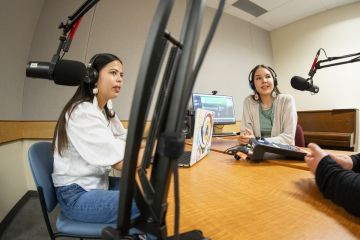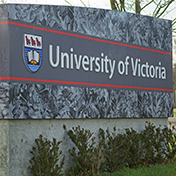Diversity and inclusion curriculum prepares students for intercultural success
Co-op, Social Sciences, Science
- Julian Sketchley
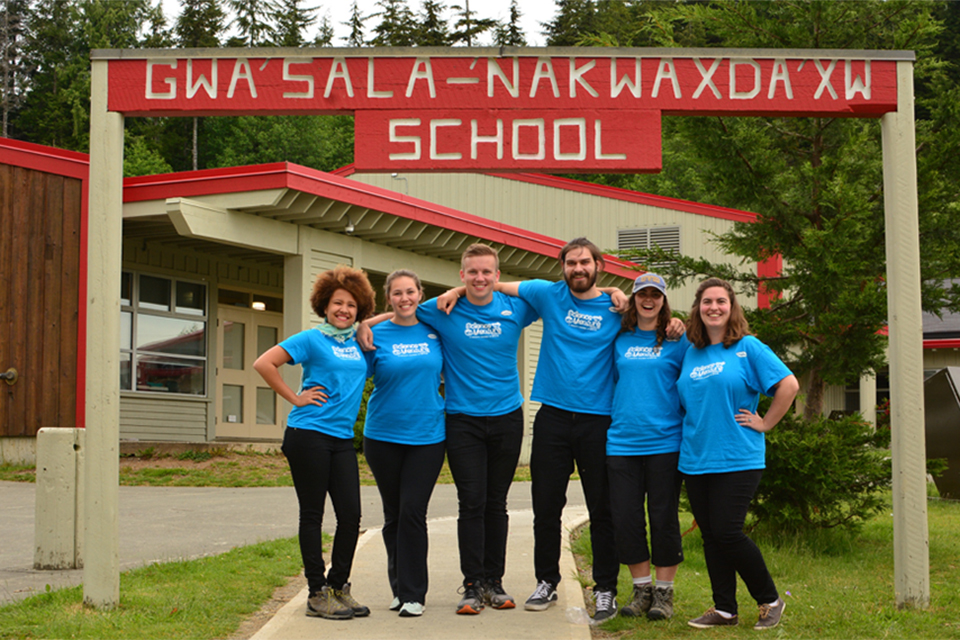
How do our personal experiences, values and culture impact our interactions with other people? Thanks to a workshop offered by Co-operative Education Program and Career Services (Co-op and Career), UVic students can learn how to effectively navigate cultural differences to become stronger global citizens.
“In today’s world, we’re crossing borders all the time,” says Karima Ramji, UVic’s international co-op programs manager. “Students study in classes that are characterized by diversity, go into diverse workplaces and are working abroad more and more. So, we need to prepare students accordingly, to be effective in different countries and around people with different customs and values.”
UVic Co-op and Career’s intercultural competencies curriculum is designed to give students the tools they need to succeed in diverse contexts. Since 2014, this training has been given to co-op students through the Introduction to Professional Practice course that all new co-op students complete prior to their first work term. The curriculum is now available to all students in a workshop format.
Supporting student experiences as part of the UVic International Plan
The intercultural competencies curriculum was developed by Co-op and Career to support both domestic and international students in developing their cultural intelligence through work-integrated learning and other academic experiences. The curriculum helps students understand and articulate competence in four key areas: intercultural motivation, intercultural knowledge, strategic thinking and appropriate behaviour.
Developing intercultural skills is about more than being aware of differences in cultural values and business practices. It’s knowing how to navigate them effectively, without compromising one’s own values, as well.
—Karima Ramji, international co-op programs manager
The development of this curriculum supports the objective of UVic’s International Plan to provide resources to help students be effective in culturally diverse settings and experiences.
Ramji recently co-authored a chapter on the topic with Co-op and Career Executive Director Norah McRae.
Helping co-op students engage in respectful and inclusive ways
“Living abroad helped me understand a lot about who I am and what I value,” says Alex Papp, a biology and environmental studies co-op student and Queen Elizabeth Scholar (QES) who spent a work term at The Kesho Trust, a charitable conservation and development organization in Tanzania.
In Canada we have the luxury of time and money that we can put towards environmental issues, but in Tanzania they are worrying about putting food on the table that night.
—Alex Papp, biology and environmental studies co-op student
Living and working in Tanzania
One of Papp’s major projects was to work alongside community members to identify viable alternative income sources to the charcoal industry—something that required challenging Western assumptions about community needs.
“I never really understood what people meant by community until I went to Tanzania. It’s not just building houses and putting walls around them—that’s not a community, that’s a living situation. And I realized that’s something I want in my own life, to create that sort of connection between people.”
Read more about Alex’s experiences
Living and working in Kenya
Political science co-op student Carina Mutschele went to Nairobi, Kenya for two co-op terms with the Aga Khan University, and spent time engaging with the local community.
“I worked with a local charity called the Teryung Foundation, made up of all local Kenyan people who grew up in this area,” she says. “It has been really different from working with western organizations that come in with good intentions but don’t really know what’s needed in the community—it has taught me a lot about the ethics surrounding international development work.”
Mutschele had such a good experience in Kenya that she decided to stay on for a third work term, this time with the United Nations. “During my time in Kenya, I have learned a lot about the culture and the language and the people, and I really feel like I developed my intercultural awareness.”
Living and working here in Canada
For international student Yamila Franco, intercultural training has helped her adapt to living and working here in Canada.
One of her roles during her co-op term as a Science Venture instructor last summer involved teaching in Indigenous communities; before her term, Franco completed the intercultural curriculum as well as Indigenous acumen training, which showed her the stories that shaped the communities she visited. This not only helped her be more empathetic and compassionate, she says, but also helped her relate to communities through similarities to her own culture in the Dominican Republic.
I felt more connected to the communities because of their support to each other, their struggles and their strength. The culture in Canada is more individualistic, but in my country, we are more united, so this really resonated with me.
—Yamila Franco, international student from the Dominican Republic
Participating in this training also helped Franco adjust to life in Canada. “For a long time, I was frustrated by the Canadian culture for being unlike mine,” says Franco. “But I learned that just because someone is different from me doesn’t make them a bad person, and I learned to understand my new friends and accept them as they are.”
While each experience is unique, developing intercultural competence can help students make a positive contribution. “We want to make sure students are always conscious of the fact that their personal values matter,” says Ramji. “If I don’t agree with a cultural practice or belief, how am I going to navigate that without comprising my own values?”
Approaching intercultural intelligence from different angles
The next Diversity and Inclusion workshop will take place Nov. 17 from 10 to 11:30 a.m. in BEC 454. Students can register at learninginmotion.uvic.ca.
Beyond the intercultural workshop, international students can also benefit from a workshop called “Succeeding in your Canadian Job Search,” where they can learn about job search practices in Canada and the Canadian workplace culture.
Find out more
Photos

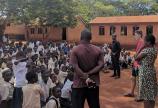
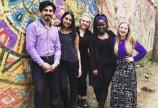
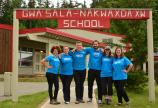
In this story
Keywords: student life, community, international, diversity, Africa, curriculum, political science, biology, environmental studies, co-op
People: Alex Papp, Karima Ramji, Carina Mutschele, Yamila Franco


